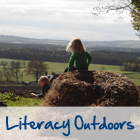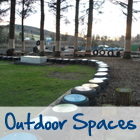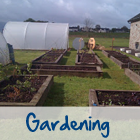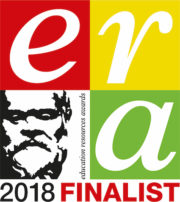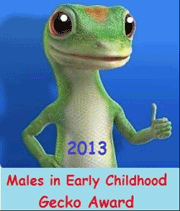This list of grants has been compiled to aid schools, youth groups, the environmental, outdoor and play sectors with finding funding for a range of outdoor ventures and initiatives. We hope you will find it of value.
- If you are able to send us any other relevant funding sources, then please let us know and we will add it to the list. We aim to up-date this list as and when we have time. The most recent update is March 2024.
- Generic advice on applying for funding can be found on this blog post. Consider purchasing a book such as The School Fundraising Handbook which has loads of advice specific to different aspects of school life.
- The ‘school’ definition may apply to nurseries for some grants. Check each funding source and read the fine print with care.
- Funding streams chop and change. Most of the links are to the organisation’s main page to reduce the number of broken links. Please let us know if anything is amiss.
- This page has been put together in good faith from extensive online searches but we can’t guarantee the information is accurate and up-to-date. You must always check the funders’ websites for funding criteria and more information about the grant. It is not exhaustive and there will be lots more funding pots out there!
Other grants and funding pages
- Funding for All does not directly fund organisations or individuals. They do however mentor you to apply for funds from other trusts and foundations to increase your chances of success. You can find the latest available grants currently open to applications in many different sectors.
- Thrive Outdoors have produced this Scottish download about funding sources for outdoor play and learning in August 2021.
- Youth Link Scotland Funding Directory This lists hundreds of opportunities for youth groups, voluntary organisations and community projects to find information on everything from small local grants to national funding schemes.
- If you are a member of Learning through Landscapes, then you can access their grants page.
- Grants4Schools is a subscription based service for schools enabling you access to their database of almost 5000 grants and funds available. Even if you can’t afford a subscription, it’s worth checking their news page regularly and signing up for their monthly newsletter.
- The Churchill Fellowship lists funding opportunities in line with its 8 universal themes and keeps the lists updated. Free to access. Includes education and the environment.
- Foundation Scotland administers funds across Scottish communities. This website provides details of each fund which is available, the area in Scotland it covers, award amounts and full guidelines for applying. One way to tap into this fund is for education settings to partner with community groups and/or charities to support their funding bids. Sign up to the newsletter for keeping up-to-date with what’s new. It is a huge funding site so take the time to search for what you need.
- Grants Online Sign up for their free monthly e-newsletter and keep up-to-date with lots of different grants for schools, community groups and other UK organisations. It has a huge database but does require a subscription fee – but there’s a choice of options here.
- The National Lottery have many different awards, some of which are relevant to schools and nurseries such as Awards for All which is particularly useful and should be checked out in the first instance for grants up to £10K.
- My Funding Central provides thousands of funding and financial opportunities for voluntary organisations, charities and social enterprises which are registered in England. Registration is subject to fees depending on annual turnover, but free to organisations with an annual turnover of up to £30,000.
- Funding Scotland. provides a search engine for all your funding needs from small grants up to big capital projects. Registration is required to access their list of over 800 funders providing support to projects in Scotland. It does not include funding opportunities for individuals or businesses.
- The Charity Commission is the Government website provides details on how to find charities and how to set up your own charity in England and Wales. OSCR is the Scottish charity regulator. Neither provide funding but useful to know about.
The categories below are approximate so check all thoroughly as something in one category may be relevant to another. They are listed as:
- North-East Scotland local funds – Whilst these are examples of local funding sources, everywhere across the UK will have similar sources. Go hunting!
- No money, just stuff – There are increasing numbers of recycling schemes and organisations offering useful freebies. Make the most of these sources. Again, look for local sources as the ones listed often seem to be fully subscribed. Often there are tradespersons and local businesses who can supply items for loose parts play or provide sponsorship, e.g. of kit or a shed, etc.
- Grants for schools and nurseries – Look at other categories too in case you miss a trick!
- Grants for individuals – Often opportunities for individuals can reap wider benefits within an organisation. These often involve professional development of one sort or another.
- Sports grants – Funds specific to sporting activities only.
- Various funds – Generic grants that don’t obviously have a home. LOOK AT THIS SECTION
- Registered charities only – brilliant for some but not good for all fund seekers. Sometimes includes CIC’s and social enterprises too. Many other sections below also have funds relevant to charities.
North-East Scotland local funds
ABERDEEN CITY HEALTH IMPROVEMENT FUND – Aberdeen City – Anyone living or working in Aberdeen City – upto £5K
The Health Improvement Fund is available for new initiatives that will improve health and wellbeing in communities across Aberdeen, either geographical communities or communities of interest. Eligible projects meet the following criteria:
- Are community led and inspire community members to get involved
- Meet local need and reflect local circumstances
- Join people together
- Can show improvements in health and wellbeing
This is a useful working example of a small scale local grant. Whilst it’s specific to Aberdeen, check your local authority for similar funding streams.
DAVID & JUNE MEMORIAL TRUST – North-East Scotland – music, the arts, community centres, youth groups, £500-£2000
This trust, set up in memory of David Gordon – 4th Marquess of Aberdeen and Temair, and his wife June, to continue their life-long interest to support music, the arts, youth groups and community centres across the North East of Scotland. Financial support has been given to a range of organisations over the years including; the Aberdeen International Youth Festival; the maintenance of community centres established in the interests of social welfare; North East of Scotland Music School. Trustees meetings are usually held in April and October each year, with applications due 3-4 weeks beforehand.
FORTMATINE RURAL PARTNERSHIP – Formatine area, Scotland – local organisations, including schools for some funds. Usually £100 – £500 depending on funding type.
The Formartine Rural Partnership has various funding schemes available which seem to vary year-on-year. It offers community funding through its Small Grants, Town & Village Enhancement and Beginning the Blossom schemes.
JO WALTERS TRUST – UK & Aberdeenshire – Schools, outdoor and community groups Maths grant up to £1K, Aberdeenshire grant up to £2K
The Jo Walters Trust, set up in 2011, commemorates the life of Joanna Walters (an inspirational person, teacher and motivator) by giving grants to causes that she would approve of which enrich people’s lives through sport, outward bound, educational and environmental projects. Maths Grants of up to £1,000 are open to all age groups in the UK to support projects which help and inspire pupils to engage with mathematics, such as trips, workshops, and the purchase of equipment. Applicants are expected to submit a 200-1,000 word report on their project, including photos where applicable with results being published in Mathematics Teaching and on the Jo Walters Trust website. Aberdeenshire grants of up to £2,000 are open to outdoor educational projects with a strong link to Aberdeenshire, and applicants must: show why the money is required to complete the project; be willing to fund-raise up to half the amount required themselves; show a full breakdown of how the money will be spent; be willing to write a report of the project afterwards, ideally including photographs and video footage; be willing to come and speak on behalf of the trust to generate interest for future grants/fundraising events. Applications close on 31st July each year.
THE GORDON AND ENA BAXTER FOUNDATION – North-East Scotland, Highlands and Islands – registered charities or constituted community or sporting groups – £100-£25K
The above Foundation provides financial assistance to those who are making a positive difference to the lives of the people in their local communities. Funding is awarded to worthy, well managed causes, projects and charitable organisations, spanning a variety of key themes which include, but are not limited to: Education and training; Arts and heritage; Health and community care; Sports; Conservation and the environment. Match funding of at least 50% of costs is a priority.
KINCARDINE DEVELOPMENT PARTNERSHIP – Kincardine, Scotland – Local Community Groups – Amounts vary
The KDP is a Scottish registered charity whose objectives are to encourage and develop voluntary activities and skills in the area; and assist in the regeneration of the area through the improvement of the physical, social and economic environment. It also manages local wind farm funds – see their website for more information. Across the UK there are likely to be similar charities that distribute local funds for local projects so see what is available in your area.
MARR AREA PARTNERSHIP GRANT SCHEMES = Marr area, Scotland – Constituted groups/organisations – up to £750 or £2K depending on scheme applied for. Match funding required.
The Marr Area Committee of Aberdeenshire Council set up this grant scheme to support sustainable community development. The Initiative Grant Scheme (IGS) provides funding of up to a maximum value of £750 which would then be match funded by at least the same amount as the grant. The Marr Area Committee Small Grants are specifically for projects which aim to help improve local communities in the Marr Area (this grant cannot be applied for in addition to the IGS). Past applications have reflected a wide range of subjects including: transport initiatives; information directories; communications networks; environmental improvement schemes, cultural and historical projects; tourism related promotions.
MID HILL WIND FARM – BANCHORY COMMUNITY FUND – Banchory and surrounding area – Projects which offer a benefit to the community – up to £2K
Mid Hill Wind Limited (MHWL), part of the Fred Olsen Renewables group and owner of the Mid Hill Wind Farm, provides funding to projects which will benefit the communities near to where the Mid Hill Wind Farm operates. Applications are welcome from organisations working in areas such as: children and young people; community buildings and amenity sites; community transport and communication initiatives; conservation, wildlife and animal sanctuary projects; culture and heritage; education and skills development; the elderly; energy efficiency and environmental sustainability; health; regeneration; self-help groups; vulnerable people. Applications are open all year round, with awards being assessed every April and October.
No money – just stuff
B&Q COMMUNITY RE-USE SCHEME – UK – Schools, nurseries, childminders, community groups – materials not money
B&Q stores have been donating unsellable materials and products to local community groups for many years. It’s a great way to reduce waste whilst helping the community. The types of material includes:
- Wood, including off cuts and single use pallets
- Plastic plant pots and trays
- Damaged or part filled cans of paint.
- Broken tiles and slabs
- Ends of wallpaper rolls
- Plants that are not in peak condition and other compostable materials
- Old products that have been written off
BTO EQUIPMENT DONATION SCHEME (EDS) – UK Y3-13 (P4 upwards) – schools and individuals
The British Trust for Ornithology have an equipment donation scheme which involves people donating their unwanted binoculars and bird guides for distribution to a child, school or university group that needs such items. If you have optics or bird guide books to donate or need this equipment for your school, then this page is worth a look.
CHIPDROP – Various locations – website lets you enter area you live before signing up
This US concept also operates in the UK but not sure of areas. Basically gardeners and tree surgeons will drop off wood chips for free that were created through their work. Be aware that it’s a free service. The quantity of chips, date and time is not given. Likewise the chips may contain a range of materials so may not be suitable for play purposes, e.g. thorns, litter, splintery material. Occasionally you may be able to procure stumps too. The same rules apply re state, size, quantity, quality and type of stumps.
THE OUTDOOR GUIDE FOUNDATION – UK – Free outdoor clothing for your school.
The goal is to donate 10 sets of wellies and waterproofs to every school in the UK. You have to nominate your school for a donation. Outdoor clothing kits are also available to purchase.
ROHAN GIFT YOUR GEAR – UK – charities and organisations who could benefit from the initiative – adult sizes only!
Rohan wants to hear from charities and organisations whose work includes an element of outdoor education, supports disadvantaged groups in getting outside, or encourages those who might not otherwise have the opportunity to make lasting memories in the great outdoors. Becoming a Gift Your Gear beneficiary doesn’t just mean receiving boxes of useable outdoor kit from Rohan. The aim is to build a lasting partnership with you, promoting your organisation to our customers and supporting you and your participants in enjoying the outdoors, in the right kit.
THE TREE COUNCIL GRANTS – UK – Schools, community groups – funding and free trees
The Tree Council has two offerings:
- Branching Out Fund – This grant is open to all schools and community groups within the UK that are planning a project which actively involves young people up to the age of 21 getting involved in tree and hedge planting and care. Funding varies from £200- £2000
- Orchards for schools – Fruit-bearing, wildlife-enhancing, carbon-storing orchard or fruiting hedgerow packs are available free to schools to inspire teachers and pupils around the country to get outdoors, plant and care for trees. Teachers will also receive an engaging set of resources, designed by experts and teachers, all linked to the national curriculum.
TREE PLANTING GRANT – South of Scotland (Borders and Dumfries & Galloway) – Schools and community groups – Up to £1000 per applicant per year. Size must not be larger than 0.25ha
The South of Scotland Tree Planting Grant provides support and funding for small scale tree planting projects that will benefit people, local landscapes and wildlife. This grant aims to help people plant more trees in order to reverse this decline. This grant is for tree and woodland planting projects that fall below the size eligible for the Forestry Grant Scheme.
WOODLAND TRUST FREE TREE PACKS – UK – Not for profit organisations, community groups, schools, nurseries, universities, outdoor learning centres. Maximum for 420 trees per group per season.
Tree packs are available to schools (which should be planted on either the school grounds, land the school has arranged regular access to or in an area that is publicly accessible) and to community groups (to be planted on land which needs to be accessible to the public, and the local community should be made aware of your plans to plant and be happy for you to go ahead). Trees are available in four different pack sizes: 15; 30; 105; 420. Groups must be willing to take on the planning, planting and care of the saplings. All packs come with bamboo canes and 60cm spiral tree protection which protects the young trees.
Grants for schools
ALPKIT FOUNDATION – UK – Small awards from £50-£500. Schools, community groups and individuals e.g. for contribution to training costs.
The foundation likes to support projects that encourage responsible outdoor activity, have long lasting benefits, introduce new people to get outdoors and demonstrate value for money.
ANDY FANSHAWE MEMORIAL TRUST – UK – 8-12 grants per year, average award around £400 – Individuals and small groups
This trust was set up following the death of mountaineer Andy Fanshawe in 1992, and provides funding to disadvantaged young people to develop an existing interest and experience in adventurous activities. Activities can include walking, climbing, cycling, kayaking, sailing, horse riding – either self-planned or for residential courses at an outdoor centre. Applicants must meet the following criteria: you (or the young person/people for whom you are applying) are developing existing experience and interest; there is an element of adventure in your plans; the activity is taking place within the United Kingdom; you have done some fund-raising for the activity or adventure; you are prepared to write a short report after your adventure/s.
BERNARD SUNLEY FOUNDATION – England & Wales only. Partial funding only. Amount varies.
There are several funding streams including community, health, education and social welfare. The education stream supports improvements and new facilities at special needs schools and the purchase of new, adapted minibuses that benefit children with special needs and disabilities. It also awards grants to educational nature centres and to new education and learning centres at museums, galleries and other arts organisations.
BLUE SPARK FOUNDATION – England – schools, clubs and societies, community groups, not-for-profit organisations, individuals. Up to £5K but mostly up to £2K
BlueSpark provides funding for projects which aim to improve the education and development of children and young people aged 5-22 by means of educational, cultural, sporting or other activities. Particular consideration will be given to projects which the trustees consider will help enhance the self-confidence, team working skills and future employability of children and young people. Projects supported include: Drama; Music; Sport; Art and design; Debating; Public speaking; Academic education; Vocational training; Community projects; Enterprise projects; Educational excursions. All applications must be made on-line.
BRITISH ECOLOGICAL SOCIETY – OUTREACH GRANTS – UK – BES members, researches, schools, community groups – Amount varies as grants are changing but normally up to £2K.
Awards are open to individuals and organisations to organise ecological public engagement events which must be aimed at a non-academic audience, provide a clear demonstration of direct interaction with them, and show evidence of links to the research community at UK, regional and international levels, where appropriate. Although this is a niche grant (forgive the pun) if you are interested in science research and involving a class or group, this could be worth a look.
CAIRNGORMS NATIONAL PARK – TRAVEL GRANT SCHEME – Scotland – schools and voluntary groups making educational visits to the Cairngorms National Park. Up to 75% of travel costs up to £200.
One of the key barriers that teachers and groups face is the high cost of travel to or around the National Park. The Outdoor Learning Travel Grant helps to overcome this. Priority is given to: schools and groups from deprived areas; those who have not visited the Park before; groups who support people with disabilities, young people, ethnic minorities and those who experience economic disadvantage or health inequality. Funding is provided for one trip per school/community group, and activities should: take place in the Cairngorms National Park, including the nine National Nature Reserves (NNRs); raise awareness and understanding of the Cairngorms National Park; involve Ranger Services and NNR staff in the National Park where possible; help deliver Curriculum for Excellence through Outdoor Learning experiences, for example using the John Muir Award. Applicatons can be made all year round.
THE ENGYNIOUS SOLAR FOR SCHOOLS PROGRAMME – UK – Free solar PV systems for schools
SolarforSchools is a social impact initiative that is co-operating with Engynious, and others, to help more schools in the UK gain access to solar power. Engynious provides clean renewable power to the participating schools at low cost where it is needed without any financial burden associated with on-going maintenance and generation for these schools in a sustainable programme and provides online access to the data so that the school can review its solar power generation and in many cases also its associated electricity consumption. This data can be linked to and used in the curriculum of the School.
ERNEST COOK TRUST – UK – schools, registered charities, not-for-profit organisations. Amounts vary according to funding stream.
As a UK educational charity, the Trust’s important work helps nurture a lifelong journey of learning, appreciation and respect for the countryside through a range of Outdoor Learning experiences. It offers a variety of grants covering a range of themes. Well worth checking out! These do change so we haven’t listed them here.
EVOLVE ADVICE GET OUT GRANT – UK – schools, charities, CICs or micro businesses – £500 grants
The Get Out! Grant is awarded every month for equipment purchase, specialist training, travel, resources with the focus on supporting pupils getting outside learning.
FIELD STUDIES COUNCIL (FSC) – GRANTS FOR SCHOOLS – UK, IoM, ROI, Channel Islands – Primary, secondary or further education courses
FSC offers grants to schools wishing to book courses at FSC Centres in the UK. These grants reduce the cost of a course to schools and parents for primary, secondary and/or further education courses from FSC’s existing range as published on their website. FSC grants for schools are paid over three years. The grants can support the same or different FSC courses each year. This means that your school will have financial support to arrange environmental education for multiple year groups, rather than just one, and unite school classes in shared experiences. FSC grants offer fixed grant amounts per school (not per class) for day or residential courses. This means your school can more easily budget for field trips. This also makes communication with parents easier knowing the grant is secured.
FORD BRITAIN TRUST – UK – see website for specific areas – Registered charities, state sector schools, non-profit organisations including small clubs and societies – small grants up to £250 and large grants from £251 to £3K.
This fund is is for projects which focus on education, the environment, children, the disabled, youth activities, and those which provide clear benefits to local communities. Grant applications for the following purposes, will be considered: contributions to capital projects (e.g. refurbishments); capital expenditure items (e.g. furniture/equipment/computers); contributions toward the purchase of a new vehicle (up to £3,000). See website for funding rounds and deadlines.
GREGGS FOUNDATION – UK and Northern Ireland – schools and not-for-profit organisations – Funding amounts not specified but previously most seem to be up to £2K.
This foundation mainly supports organisations based in North-East England. But it has several grant streams including breakfast clubs, holiday clubs, environmental grants and local communities project fund.
THE HENRY SMITH CHARITY – HOLIDAY GRANTS FOR CHILDREN – UK – Schools, youth groups, not-for-profit organisations, small charities – £500 – £2.75K
The purpose of the Holiday Grants programme is to provide access to recreational trips or holidays for groups of children (under 13yrs of age) who experience disadvantage or who have disabilities. In particular we are interested in contributing to trips that would not take place without their funding. Applications can be made for grants towards a single trip, which could be a day trip or a longer residential of up to seven days in length. This could be to a countryside or city location but ideally should be outside the children’s immediate locality. Trips which are more local are considered but these should have an emphasis on providing a new experience for the children and broadening their horizons. Examples include camping, trips to adventure activity centres or the seaside. We will consider multiple trips where a large group of children need to be split into smaller groups due to capacity issues, these trips must provide the same experience for all attending with trip dates being in the same application period.
HOSTELLING SCOTLAND EXPLORER FUND – Scotland – Schools, youth groups, colleges, registered charities working with target groups of young people – Assistance with accommodation costs.
The Explorer Fund is designed to give disadvantaged young people a valuable break away from home while exploring a new part of Scotland. Groups of young people aged 8 – 25 years old can choose to go to any Hostelling Scotland Hostel (affiliate hostels are not included) for up to 3 nights, with catering also included depending on the needs of the group, the group size (minimum of 5 young people and maximum of 25 young people plus leaders) and the hostel. Please note transport costs and any other costs, including activities, are the responsibility of the successful group, who are also required to pay a contribution of either £50/£100 depending on the total cost of the trip. Please also see the Mini Explorers Fund for residential trips for early years children. Note: information on website not been updated since 2020. Not sure if fund exists.
IGAS ENERGY COMMUNITY FUND – England – Charitable organisations and local schools – up to £2K
This fund helps local communities close to the oil and gas production and exploration sites where IGas operates. IGas are keen to support community and voluntary organisations that are charitable, educational or benevolent in purpose, and welcome applications from schools involving wider community benefits and projects that have health benefits for the community. Applicants are welcome from organisations which involve: a broad span of the community; children and young people; vulnerable people; community regeneration; energy; self-help groups; environmental and wildlife projects; education and skills development; health; heritage; sustainability. All applicants will need to demonstrate the need for the chosen project, real community benefits and value for money. Funds are awarded once yearly – please see the website for deadlines.
JO WALTERS TRUST – UK & Aberdeenshire – Schools, outdoor and community groups Maths grant up to £1K, Aberdeenshire grant up to £2K
The Jo Walters Trust, set up in 2011, commemorates the life of Joanna Walters (an inspirational person, teacher and motivator) by giving grants to causes that she would approve of which enrich people’s lives through sport, outward bound, educational and environmental projects. Maths Grants of up to £1,000 are open to all age groups in the UK to support projects which help and inspire pupils to engage with mathematics, such as trips, workshops, and the purchase of equipment. Applicants are expected to submit a 200-1,000 word report on their project, including photos where applicable with results being published in Mathematics Teaching and on the Jo Walters Trust website. Aberdeenshire grants of up to £2,000 are open to outdoor educational projects with a strong link to Aberdeenshire, and applicants must: show why the money is required to complete the project; be willing to fund-raise up to half the amount required themselves; show a full breakdown of how the money will be spent; be willing to write a report of the project afterwards, ideally including photographs and video footage; be willing to come and speak on behalf of the trust to generate interest for future grants/fundraising events. Applications close on 31st July each year.
JOHN WATSON’S TRUST – Scotland (primarily Edinburgh and the Lothians) – individuals, groups, organisations, schools. Amounts vary.
The John Watson’s Trust awards grants to children and young people under 21 years old with either a physical or learning disability or who are in a situation of deprivation. The criteria of the Trust states that grants awarded should be for educational purposes and are available to individuals and groups or organisations working with eligible young people. Although the Trust operates primarily within Edinburgh and the Lothians, funds can be allocated Scotland wide depending on each individual case. Grants could be used for the following as an example: special or additional tuition; school trips within the UK (must be applied for by the school and not individuals); bus passes; school expenses such as books and equipment; laptops where there is a special education need. There are approximately 5 funding rounds open each year.
KELLOGG’S BREAKFAST CLUB GRANTS PROGRAMME – UK & Northern Ireland – Schools – £1000
Kellogg’s provides grants for breakfast to those children who need it most. A limited number of grants are available so priority will be given to schools that have either: 35% and above of children eligible for pupil premium funding (England) and eligible for free school meals (Northern Ireland, Scotland and Wales); schools that are based in an area which is classified as falling in the 10% of most deprived areas according to the Index of Multiple Deprivation. Only one grant per school in each academic year is available and if your school has received breakfast club funding from Gregg’s or Magic Breakfast within the current academic year, you will not be considered a priority for support. Funding can be applied for at any time.
LEARNING THROUGH LANDSCAPES Local Schools Nature Grants – England, Scotland, Wales – Schools and Nurseries – £500
Learning through Landscapes, with the help of the Postcode Local Trust, offer schools in England, Scotland and Wales, the opportunity to apply for £500 worth of outdoor resources and a two hour training session. Early years providers must have at least 5 staff and a building – either stand alone or part of a school.
They are keen to work with schools who are passionate about making environmental improvements for the benefit of their pupils, staff and the community, and ideally with those who will include children in the decision making and incorporate their local community.
LINNAEAN SOCIETY – Our Local Nature Grant Scheme – UK – Up to £1000 but generally grants seem significantly less than this. Designed to provide young people with an opportunity to take the lead on projects that involve their local nature and natural spaces, to aid young people in realising their influence to affect positive change, to have their voices heard, and see their ideas come to life. The grant funds innovative projects that are designed and led by young people in the UK.
LOCH LOMOND & THE TROSSACHS NATIONAL PARK – EDUCATION TRAVEL GRANT – UK – Schools in Scotland, groups and intermediaries who support and work with people experiencing some form of disadvantage – 75% of transport costs up to £200
This travel grant can be used for transport costs to and from your school or group’s meeting places to the National Park and the costs of accessing Inchcailloch for outdoor learning activities. Applications are welcome for visits to the National Park and activities applied for should raise awareness and understanding of Loch Lomond and The Trossachs National Park, involve the National Park Ranger Service where possible, and help deliver Curriculum for Excellence through Outdoor Learning experiences. Priority will be given to schools and groups from areas of multiple deprivation and those who have not visited the National Park or worked with the Ranger Service previously. Grant payments will be limited to one grant award per school/group in any one financial year.
LONDON MATHEMATICAL SOCIETY – UK – Various grants for various groups, e.g. teachers, researchers, etc. Amount varies according to funding source.
LMS have a mind-boggling array of funds and grants aimed at supporting the development of maths, disseminate knowledge, undertake research, create and/or attend conferences and so on. At the foot of the grants page there is also links to further maths funding. So this is all worth investigating – we need more people researching and presenting and telling the world why maths taught outside seems to be so effective.
LORD’S TAVERNERS – UK – SEN schools/organisations for young people with learning and physical disabilities – providing minibuses
The Lord’s Taverners give minibuses to provide vital mobility for youngsters under the age of 25 with special needs and/or a disability to enable them to engage and participate in sporting and recreational activities within the local community, as well as supporting the wider curriculum and to help develop life skills. Each minibus is custom designed and costs in the region of £65,000. Please note all approved applicants are required to pay a self-help contribution towards the minibus, the cost of which is dependent on the type of minibus and waiting list required. The Lord’s Taverners have a range of schemes to empower young people through cricket and this includes a sports kit recycling programme.
OUTWARD BOUND TRUST – UK – Financial support of up to 40% for young people who are UK residents
Through charitable subsidies and a bursary scheme, the Outward Bound Trust are able to provide financial support to schools, colleges and youth groups, enabling them to benefit from high quality residential experiences. To be eligible for funding, applicants must meet at least two of the following criteria: free school meals; low-income family; English as a second language; special educational needs; poor educational attainment; at risk of offending; ethnic minority backgrounds. Applications must be submitted on line, with a decision on eligibility and the amount of bursary awarded normally returned within 24 hours.
ROYAL GEOGRAPHY SOCIETY – UK – grants available to teachers, researchers, students for geography research, expeditions and projects – amounts vary
Grants are available for desk-based research, fieldwork and expeditions, research into teaching and learning, developing teaching resources, and for international conference attendance.
THE ROYAL SOCIETY – UK – individuals, schools, researchers for science research and projects – amounts vary
The Royal Society is the independent scientific academy of the UK, dedicated to promoting excellence in science for the benefit of humanity. It offers a range of open grants such as the Partnership Grant that is specific to schools offering up to £3K forSTEM projects.
ROYAL SOCIETY OF CHEMISTRY – UK & Ireland – individuals, schools, researchers specialising in chemistry – amounts vary according to the fund.
The RSC has many different funding options. The society exists to connect scientists with each other and society as a whole, so they can do their best work and make discoveries and innovation happen.They publish new research. They develop, recognise and celebrate professional capabilities. They bring people together to spark new ideas and new partnerships. We support teachers to inspire future generations of scientists. And they speak up to influence the people making decisions that affect us all. Have a look at the Outreach Fund.
SCOTMID COMMUNITY GRANTS – Scotland – Individuals or groups, including schools – up to £500
Aiming to help deserving causes in Scottish Communities, the group or project must be based in or benefit a community served by one of the Scotmid’s stores and within the geographic boundaries of one of their Regional Committees. An independent reference will be required for applications of £250 or more.
SEA CHANGERS – UK – charities, not-for-profit organisations, schools – various grants: small grants (up to £500) and main grants (up to £1200).
Sea Changers raise money for projects which will achieve one or more of the following: to address the root causes of marine conservation threats and challenges in the UK; to prevent or reduce negative impacts on UK coastal and marine environments and/ or species; to add to the body of knowledge about marine conservation threats and challenges in the UK. They are particularly interested in grassroots projects which galvanise community action and those which increase the number of people taking action for marine conservation. Deadlines for the Main Grant applications are twice yearly on 31st March and 30th September. Please check the website for Small Grant deadlines.
SHINE (Let Teachers SHINE) – North-East England (but broad area), schools. Grants up to £25K over 2 years
Let Teachers SHINE offers grants of up to £25,000 over two years, plus dedicated support from a hands-on funder. SHINE seeks to support teachers with innovative ideas for projects that can be trialled and developed with the potential to improve outcomes for socio-economically disadvantaged children living in the North of England. Strong focus on attainment and projects that work with parents and families.
WOODEN SPOON GRANTS – UK & Ireland – schools, charities, clubs – Award amount varies
Wooden Spoon, the children’s charity of rugby, fund around 70 projects each year that support disadvantaged and disabled children, from sensory rooms, specialist playgrounds and sports activity areas to respite, medical and community care. Awards will be given to projects which: enhance and support the lives of children and young people (under the age of 25) who are disadvantaged physically, mentally or socially; work directly with children and young people and have a positive influence on their lives as a result of the activities or service provided; benefit those located in the UK or Ireland; support a group (grants cannot be made to individuals). There is also a separate list of criteria for projects which are a physical, tangible asset of a permanent nature, or projects which are educational or disability sports-focused. Please note there is neither a minimum nor a maximum grant level, however, it is unlikely that a project of a physical nature that is under £5,000 will have sufficient substance and scale to qualify under their “projected lifespan” rule. Wooden Spoon’s contribution may be up to 100% of the cost, though beneficiary organisations will be encouraged, where practicable, to raise a proportion themselves. The trustees meet four times each year.
WOODROFFE BENTON FOUNDATION – UK (especially Derbyshire) – Charitable organisations, educational institutions – £500 – £2500
Grants are awarded in the following areas: relief of persons in need, hardship or distress by reason of disaster or as a consequence of social or economic circumstance; provision/maintenance of care and accommodation for the sick and elderly; promotion of education – in particular within the Derbyshire region; environmental conservation/preservation/protection/improvement – in particular where this would encourage the provision of access by members of the general public. It is the trustees’ present policy to assist smaller organisations with core costs. The trustees meet three times yearly in January, May and September to decide on applications.
Grants for individuals
ALPKIT FOUNDATION – UK – Small awards from £50-£500. Schools, community groups and individuals e.g. for contribution to training costs.
The foundation likes to support projects that encourage responsible outdoor activity, have long lasting benefits, introduce new people to get outdoors and demonstrate value for money.
BRITISH ECOLOGICAL SOCIETY – OUTREACH GRANTS – UK – BES members, researches, schools, community groups – Amount varies as grants are changing but normally up to £2K.
Awards are open to individuals and organisations to organise ecological public engagement events which must be aimed at a non-academic audience, provide a clear demonstration of direct interaction with them, and show evidence of links to the research community at UK, regional and international levels, where appropriate. Although this is a niche grant (forgive the pun) if you are interested in science research and involving a class or group, this could be worth a look.
THE CHURCHILL FELLOWSHIP – UK – Individuals – Award varies according to length and places visited
Fellows are funded to discover the latest innovations and best practice in any practical issue they care passionately about, anywhere in the world. They meet leading practitioners, engage with cutting-edge projects and create a report on their findings. Then they are supported to share insights with communities and sectors across the UK and turn their ideas into action. Every UK citizen can apply, regardless of their qualifications, background or age. Individuals not organisations are funded and the advisers look for future potential not present status. People who would not receive funding from other sources are prioritised. Every year up to 150 fellows are appointed from around 2000 applications. There are universal and annual themes. Education is always featured.
THE COSY FOUNDATION – UK & Africa – Local voluntary individuals and groups, community groups, educators and small charities mainly in Derby City and Shire – Amounts vary but usually £200 or thereabouts.
Supporting small, grassroots projects. No official funding application but requests considered on a case-by-case basis.
CREATIVE SCOTLAND – OPEN FUND FOR INDIVIDUALS – Scotland – Freelance and self-employed artists/creative practitioners £500- £100K
This fund supports a period of research, development and/or delivery of creative activity for up to 24 months for artists and practitioners living in Scotland over the age of 18. Applicants must demonstrate how their activity will not only benefit their own creative development, but also provide opportunities for the wider community to develop, evolve and flourish. Applications are open all year round.
DES RUBENS & BILL WALLACE GRANT – JOHN MUIR TRUST – UK – Individuals, £200-£2K
This Grant offers to give people the opportunity to seek out life-changing experiences in wild places of the world in ways which will benefit both the person and the wild places themselves, while commemorating 2 former Presidents of the Scottish Mountaineering Club who each led inspiring and adventurous lives. Applications are open to those of any age and ability, who must have a Scottish interest/link, charitable aims (educational/scientific/community development), and can show self-motivation, determination and commitment to achieve. The Grant committee will favour independent self-led experiences over commercial expeditions, or pre-paid/charity/fundraising tours, and give priority to individuals whose financial need is greatest. Applications close on 15th January each year.
FIRSTPORT – Scotland – Individuals and groups looking to start up social enterprises and established social enterprises . Amount of funding varies. Business Gateway also offers free training and support for individuals looking to set up as sole traders, companies or partnerships in Scotland.
JOHN WATSON’S TRUST – Scotland (primarily Edinburgh and the Lothians) – individuals, groups, organisations, schools. Amounts vary.
The John Watson’s Trust awards grants to children and young people under 21 years old with either a physical or learning disability or who are in a situation of deprivation. The criteria of the Trust states that grants awarded should be for educational purposes and are available to individuals and groups or organisations working with eligible young people. Although the Trust operates primarily within Edinburgh and the Lothians, funds can be allocated Scotland wide depending on each individual case. Grants could be used for the following as an example: special or additional tuition; school trips within the UK (must be applied for by the school and not individuals); bus passes; school expenses such as books and equipment; laptops where there is a special education need. There are approximately 5 funding rounds open each year.
LONDON MATHEMATICAL SOCIETY – UK – Various grants for various groups, e.g. teachers, researchers, etc. Amount varies according to funding source.
LMS have a mind-boggling array of funds and grants aimed at supporting the development of maths, disseminate knowledge, undertake research, create and/or attend conferences and so on. At the foot of the grants page there is also links to further maths funding. So this is all worth investigating – we need more people researching and presenting and telling the world why maths taught outside seems to be so effective.
ROYAL GEOGRAPHY SOCIETY – UK – grants available to teachers, researchers, students for geography research, expeditions and projects – amounts vary
Grants are available for desk-based research, fieldwork and expeditions, research into teaching and learning, developing teaching resources, and for international conference attendance.
THE ROYAL SOCIETY – UK – individuals, schools, researchers for science research and projects – amounts vary
The Royal Society is the independent scientific academy of the UK, dedicated to promoting excellence in science for the benefit of humanity. It offers a range of open grants such as the Partnership Grant that is specific to schools offering up to £3K forSTEM projects.
ROYAL SOCIETY OF CHEMISTRY – UK & Ireland – individuals, schools, researchers specialising in chemistry – amounts vary according to the fund.
The RSC has many different funding options. The society exists to connect scientists with each other and society as a whole, so they can do their best work and make discoveries and innovation happen.They publish new research. They develop, recognise and celebrate professional capabilities. They bring people together to spark new ideas and new partnerships. We support teachers to inspire future generations of scientists. And they speak up to influence the people making decisions that affect us all. Have a look at the Outreach Fund.
SCOTMID COMMUNITY GRANTS – Scotland – Individuals or groups, including schools – up to £500
Aiming to help deserving causes in Scottish Communities, the group or project must be based in or benefit a community served by one of the Scotmid’s stores and within the geographic boundaries of one of their Regional Committees. An independent reference will be required for applications of £250 or more.
TESCO COMMUNITY GRANTS – UK – schools, voluntary and community organisations, registered charities – Amount varies subject to local votes up to £1500.
Tesco, offer this local community grant scheme where the money raised from plastic carrier bag sales is being used to fund thousands of local projects in communities right across the UK. Three community projects in each local Tesco area will be voted on by customers in Tesco stores throughout the UK (via tokens being placed in voting units in stores), with projects changing every other month. Projects eligible for funding could include: equipment or non statutory services for nurseries or schools e.g. Forest schools or library books; equipment for Brownie, Guide or Scout Groups e.g. camping equipment or badges; environmental improvements; play areas, counselling and support services; activities to support mental health; activities or equipment to reduce social isolation; equipment/kit for sports teams; etc.
Community charity Groundwork manages this website and administers the funding across the UK. Groundwork is working with greenspace scotland to support successful projects in Scotland.
Sports grants
ALDI SCOTTISH SPORT FUND – SCOTLAND – Awards of: 1 x £2,500, 2 x £1,000, 5-10 x £500 – School/educational organisations
Aldi offers funding to Scottish sports clubs within the areas of their stores. Their aim is to increase the positive impact they have on local communities by helping as many sports clubs as possible. Please note there are separate application deadlines for each Scottish region throughout the year.
DAN MASKELL TENNIS TRUST – UK – UK citizens resident in the UK with a disability (up to £500), tennis groups, clubs or projects (up to £1500)
The Trust specialises in creating opportunities and supporting disabled people who want to play tennis by: providing specialist wheelchairs for individuals, clubs, special schools and centres running disability programmes; providing equipment/coaching kit-bags for coaches, clubs, special schools, disability groups and associations; grant-aiding disability groups, associations, programmes and individuals with a disability with financial aid towards certain tennis expenses; and supporting disabled tennis players and appropriate programmes. The application deadline will be displayed on the website.
SPORT ENGLAND FUNDS – England – Eligibility and amount depends upon fund applied for
Sport England want everyone in England regardless of age, background or level of ability to feel able to engage in sport and physical activity. There are several open funds and lots. In particular, look at the small grants programme. Schools using their facilities for wider community benefit are eligible.
SPORT SCOTLAND FUNDS – Scotland – Eligibility and amount depends upon fund applied for
The main funds are the sports facilities fund to support capital projects that create or improve places where people take part in sport or physical activity. Coaches can also apply for funding towards UKCC courses from Sports Scotland. Applicants must clearly demonstrate that they are either working or living in Scotland and are committed to continue their coaching in Scotland as part of a recognised sports programme.
Various other grants
ACTION EARTH – VOLUNTERING MATTERS GRANT – SCOTLAND – £50 – £250 – Groups of volunteers
Volunteering Matters Action Earth funding is provided by SNH and NatureScot. Grant is for local greenspace improvements not school grounds. This could be useful for any group using local greenspace and need to make improvements.
ANDY FANSHAWE MEMORIAL TRUST – UK – 8-12 grants per year, average award around £400 – Individuals and small groups
This trust was set up following the death of mountaineer Andy Fanshawe in 1992, and provides funding to disadvantaged young people to develop an existing interest and experience in adventurous activities. Activities can include walking, climbing, cycling, kayaking, sailing, horse riding – either self-planned or for residential courses at an outdoor centre. Applicants must meet the following criteria: you (or the young person/people for whom you are applying) are developing existing experience and interest; there is an element of adventure in your plans; the activity is taking place within the United Kingdom; you have done some fund-raising for the activity or adventure; you are prepared to write a short report after your adventure/s.
BERNARD SUNLEY FOUNDATION – England & Wales only. Partially funding only. Amount varies.
There are several funding streams including community, health, education and social welfare. The education stream supports improvements and new facilities at special needs schools and the purchase of new, adapted minibuses that benefit children with special needs and disabilities. It also awards grants to educational nature centres and to new education and learning centres at museums, galleries and other arts organisations.
CHILDREN IN NEED – UK, Isle of Man, Channel Islands – Registered charities, voluntary organisations, schools, community interest groups – Small grants up to £10K annually for 3yrs, main grants over £10K annually for up to 3 yrs.
Supporting people that understand the needs of disadvantaged children and young people, and places making a difference in their lives at the heart of all activities, with projects which: take the initiative and show clearly how they will make a difference in children and young people’s lives; address the challenges that children and young people face; build their skills and resilience; empower them and extend their choices in life; involve children and young people in the design, delivery and evaluation of their work; are keen to keep learning about their work so that their ability to make a difference in children and young people’s lives can keep on improving. Organisations are expected to have diverse sources of income and sound financial management and have a management committee or trustee board with a good range of experience. Grants are awarded four times yearly.
THE COALFIELDS REGENERATION TRUST – England, Scotland, Wales: Communities in coalfield areas – Amounts vary.
The Trust was established to support coalfield communities and create opportunities for their people. Each country has different approaches and foci so click on the link for more information. Tackling poverty and projects that improve health and wellbeing are examples.
THE COSY FOUNDATION – UK & Africa – Local voluntary individuals and groups, community groups, educators and small charities mainly in Derby City and Shire – Amounts vary but usually £200 or thereabouts.
Supporting small, grassroots projects. No official funding application but requests considered on a case-by-case basis.
CREATIVE SCOTLAND – Scotland – organisations and individuals – amount varies
Creative Scotland funding is open to individuals, groups or organisations to apply for, supporting a wide range of activity in the arts, screen and creative industries. View the programmes on the website for more information about what each will support and how to apply. Outdoor art, music and dance is always worth considering.
EASY FUNDRAISING – UK – Various causes and amounts
This shopping website allows you to gain commission on all purchases made through their range of over 3,000 shops and sites. Commission is earned on each purchase which can be donated to your chosen cause, or you can register your own. The service is free to use.
ENTRUST – England & Northern Ireland – Not-for-profit organisations – Funding amounts and eligibility vary
Entrust is the regulator of the Landfill Communities Fund. It has various eligibility criteria for projects to receive funding, namely projects must be within 10 miles of an Environment Agency registered landfill site and must match one of a number of objects (or areas of work) which are defined within the regulations. These are as follows:
- the reclamation, remediation or restoration of land which cannot currently be used;
- the prevention of potential for pollution or the remediation of the effects of the pollution;
- the provision, maintenance or improvement of a public park or another public amenity;
- the conservation or promotion of biodiversity; and
- the restoration of a place of religious worship or of historic or architectural interest.
There are many different environmental bodies that operate as funders. You can find one in your local area and click on the link to find out what is funded and how. For Scotland scroll down to the Scottish Landfill Communities Fund.
ERNEST COOK TRUST – UK – schools, registered charities, not-for-profit organisations. Amounts vary according to funding stream.
As a UK educational charity, the Trust’s important work helps nurture a lifelong journey of learning, appreciation and respect for the countryside through a range of Outdoor Learning experiences. It offers a variety of grants covering a range of themes. Well worth checking out! These do change so we haven’t listed them here.
ESMÉE FAIRBAIRN FOUNDATION – UK – Not-for-profit organisations and registered charities – >£30K
The Foundation’s aim is to improve our natural world, secure a fairer future, and strengthen the bonds in communities in the UK by contributing all that they can to unlock change by people and organisations with brilliant ideas who share their goals. Funding is provided to cover organisation’s core or project costs, including staff salaries and overheads. Applications are open all year round.
EVOLVE ADVICE GET OUT GRANT – UK – schools, charities, CICs or micro businesses – £500 grants
The Get Out! Grant is awarded every month for equipment purchase, specialist training, travel, resources with the focus on supporting pupils getting outside learning.
FIRSTPORT – Scotland – Individuals and groups looking to start up social enterprises and established social enterprises . Amount of funding varies.
FORD BRITAIN TRUST – UK – see website for specific areas – Registered charities, state sector schools, non-profit organisations including small clubs and societies – small grants up to £250 and large grants from £251 to £3K.
This fund is is for projects which focus on education, the environment, children, the disabled, youth activities, and those which provide clear benefits to local communities. Grant applications for the following purposes, will be considered: contributions to capital projects (e.g. refurbishments); capital expenditure items (e.g. furniture/equipment/computers); contributions toward the purchase of a new vehicle (up to £3,000). See website for funding rounds and deadlines.
GREGGS FOUNDATION – UK and Northern Ireland – schools and not-for-profit organisations – Funding amounts not specified but previously most seem to be up to £2K.
This foundation mainly supports organisations based in North-East England. But it has several grant streams including breakfast clubs, holiday clubs, environmental grants and local communities project fund
HEALTHY HEARTS GRANTS – UK – Not-for-profit organisations, community/voluntary groups, registered charities – up to £15K
The Heart Research UK offer Healthy Heart Grants of up to £15,000 to community projects across the UK that focus on heart health and promote healthier, happier longer lives. See website for more information.
THE HENRY SMITH CHARITY – HOLIDAY GRANTS FOR CHILDREN – UK – Schools, youth groups, not-for-profit organisations, small charities – £500 – £2.75K
The purpose of the Holiday Grants programme is to provide access to recreational trips or holidays for groups of children (under 13yrs of age) who experience disadvantage or who have disabilities. In particular we are interested in contributing to trips that would not take place without their funding. Applications can be made for grants towards a single trip, which could be a day trip or a longer residential of up to seven days in length. This could be to a countryside or city location but ideally should be outside the children’s immediate locality. We will consider trips which are more local but these should have an emphasis on providing a new experience for the children and broadening their horizons. Examples include camping, trips to adventure activity centres or the seaside. We will consider multiple trips where a large group of children need to be split into smaller groups due to capacity issues, these trips must provide the same experience for all attending with trip dates being in the same application period.
HOSTELLING SCOTLAND EXPLORER FUND – Scotland – Schools, youth groups, colleges, registered charities working with target groups of young people – Assistance with accommodation costs.
The Explorer Fund is designed to give disadvantaged young people a valuable break away from home while exploring a new part of Scotland. Groups of young people aged 8 – 25 years old can choose to go to any Hostelling Scotland Hostel (affiliate hostels are not included) for up to 3 nights, with catering also included depending on the needs of the group, the group size (minimum of 5 young people and maximum of 25 young people plus leaders) and the hostel. Please note transport costs and any other costs, including activities, are the responsibility of the successful group, who are also required to pay a contribution of either £50/£100 depending on the total cost of the trip. Please also see the Mini Explorers Fund for residential trips for early years children. Note: information on website not been updated since 2020. Not sure if fund exists.
IGAS ENERGY COMMUNITY FUND – England – Charitable organisations and local schools – up to £2K
This fund helps local communities close to the oil and gas production and exploration sites where IGas operates. IGas are keen to support community and voluntary organisations that are charitable, educational or benevolent in purpose, and welcome applications from schools involving wider community benefits and projects that have health benefits for the community. Applicants are welcome from organisations which involve: a broad span of the community; children and young people; vulnerable people; community regeneration; energy; self-help groups; environmental and wildlife projects; education and skills development; health; heritage; sustainability. All applicants will need to demonstrate the need for the chosen project, real community benefits and value for money. Funds are awarded once yearly – please see the website for deadlines.
JO WALTERS TRUST – UK & Aberdeenshire – Schools, outdoor and community groups Maths grant up to £1K, Aberdeenshire grant up to £2K
The Jo Walters Trust, set up in 2011, commemorates the life of Joanna Walters (an inspirational person, teacher and motivator) by giving grants to causes that she would approve of which enrich people’s lives through sport, outward bound, educational and environmental projects. Maths Grants of up to £1,000 are open to all age groups in the UK to support projects which help and inspire pupils to engage with mathematics, such as trips, workshops, and the purchase of equipment. Applicants are expected to submit a 200-1,000 word report on their project, including photos where applicable with results being published in Mathematics Teaching and on the Jo Walters Trust website. Aberdeenshire grants of up to £2,000 are open to outdoor educational projects with a strong link to Aberdeenshire, and applicants must: show why the money is required to complete the project; be willing to fund-raise up to half the amount required themselves; show a full breakdown of how the money will be spent; be willing to write a report of the project afterwards, ideally including photographs and video footage; be willing to come and speak on behalf of the trust to generate interest for future grants/fundraising events. Applications close on 31st July each year.
JOHN LEWIS COMMUNITY MATTERS FUND – UK – Community groups, schools, charities – A share of £3K
Community Matters is a charitable giving scheme that runs throughout John Lewis and Partners shops. Every three months each shop selects 3 good causes to help, leaving customers to decide how much each cause will receive by voting with tokens in collection boxes in store. Each shop has £3000 per quarter to donate, which is shared between the charities according to the proportion of the vote they’ve received from customers (i.e. a group receiving 31% of the votes will receive a £910 donation).
KEEP SCOTLAND BEAUTIFUL – Scotland – Various community groups and schools
In the past KSB has managed several pots of funds linked to climate change. Sign up to their newsletter to keep informed about new funding opportunities.
THE LECHE TRUST – UK – Registered charities, public authorities and public institutions (not schools) – up to £5K
The Trust currently makes grants towards two areas, Performing Arts (priorities for music, theatre and dance are: excellence in professional performance; new work; development of young, professional artists aged 18 or over) and Conservation (supporting projects to conserve historic objects, collections and features of buildings and landscapes which date from the Georgian period or earlier, i.e. pre-1830s). Trustees meet 3 times per year to decide on awards.
LES MILLS FUND FOR CHILDREN – UK – Registered charities and nonprofit organisations – up to £1K
The Les Mill’s Fund for Children works with carefully selected organisations who share their views of creating a healthier and fitter planet by making the opportunity available to everyone. Funding will be provided to organisations who they believe will do their most to improve the education and physical and emotional wellbeing of children aged 0 – 16 years old and who focus on one or more of the following areas:
- Are inactive and/or suffering from obesity
- Are living in poverty and danger
- Are living with a disability
- Lack the access to health and wellbeing opportunities
- Have physical and mental health problems
LORD’S TAVERNERS – UK – SEN schools/organisations for young people with learning and physical disabilities – providing minibuses
The Lord’s Taverners give minibuses to provide vital mobility for youngsters under the age of 25 with special needs and/or a disability to enable them to engage and participate in sporting and recreational activities within the local community, as well as supporting the wider curriculum and to help develop life skills. Each minibus is custom designed and costs in the region of £65,000. Please note all approved applicants are required to pay a self-help contribution towards the minibus, the cost of which is dependent on the type of minibus and waiting list required. The Lord’s Taverners have a range of schemes to empower young people through cricket and this includes a sports kit recycling programme.
NATURESAVE TRUST – UK – Charities, voluntary organisations, businesses (not schools) – £500-£2.5K
This small charity offers funding to projects which specifically address the promotion and implementation of sustainable development, environmental and/or conservationist improvement and/or general green issues. Grants given may be subject to various criteria and funds are only released once these criteria have been met. Please note the trust will not fund research projects or staff costs. There are no application deadlines.
NATURAL RESOURCES WALES GRANT FUNDING – Wales – Amount varies – organisation type varies
Natural Resources Wales provides funding for a range of projects. If you are based in Wales check the Grants and Awards page regularly to see what is available and to which target groups.
OUTDOORS FOR ALL – UK – Individuals and organisations who fit with the sense of the objective statement below including charities, not-for-profits and educational institutions – £500 to £5000
The organisation’s objective is to “provide grants to individual persons and other organisations to provide access and/or opportunities to recreational and leisure time outdoor activities and experiences to children, adults, persons who are disabled either permanently or temporarily and persons with special physical or mental health needs“
PATHS FOR ALL – GRANTS AND FUNDING – Scotland – Constituted groups, community woodlands, health walking projects. See website. Amount of funding varies according to fund.
A range of grant funds for projects which contribute to the organisation’s goal of creating a happier, healthier, greener Scotland where everyone can be active every day. The funding programmes support projects to increase participation in walking, active travel, and improve community paths for travel and recreation.
PAUL HAMYLN FOUNDATION – UK – Eligibility varies according to the funding stream. Amounts vary according to funding stream. This is mainly for big project ideas.
PHF invests around £30 million each year across six funding priorities where we wish to see change. Our commitment to social justice underpins all these priorities. We have six open application funds, and receive over 1000 applications each year. On average we fund around 20% of the applications we receive, although this varies between Funds. Find out more about our funding priorities below:
- Arts Access and Participation
- Education and Learning through the Arts
- Investing in Young People (14-25yrs)
- Nurturing Ideas and People
PEOPLE’S POSTCODE LOTTERY – UK – small non-profits, charities, constituted voluntary organisations, CIC’s. £500-£20K
The above link shows the range of charities funded to-date.. In addition, the PPL manages the postcode lottery for 20 Postcode Trusts. For example in Scotland it’s the Scottish Postcode Trust – if you go to this link you can enter your postcode to find your local postcode trust in other parts of the UK.
To be eligible for funding, all projects must help in one or more of the following areas: improving mental wellbeing; enabling community participation in the arts; preventing or reducing the impact of poverty; supporting marginalised groups and promoting equality; improving biodiversity and green spaces; enabling participation in physical activity; responding to the climate emergency and promoting sustainability; increasing community access to outdoor space. Organisations can apply for either project or core funding and will have 12 months to spend the award.
THE PRINCE OF WALES CHARITABLE FUND – SMALL GRANTS – UK – Registered not-for-profit organisations – up to £5K per year. Average grant award is £2K
The Prince of Wales’s Charitable Fund (PWCF) aims to make a significant impact through its grant making programme to people and their communities. Therefore, the Charitable Fund is particularly interested to receive small grant applications in support of grassroot community-based projects in the UK. Grants will be awarded for a single financial year to organisations that have completed at least two years of activity and are able to submit accounts or income and expenditure statements.
THE RAGDOLL FOUNDATION – UK – Not-for-profit organisations – Amounts vary according to grant or programme applied for
The Ragdoll Foundation supports children and young people through the arts and creativity. It is dedicated to supporting the creation, appreciation and awareness of imaginative and innovative content, programmes and projects. It is worth checking the website every now and then to see what is being funded and why.
SCOTMID COMMUNITY GRANTS – Scotland – Individuals or groups, including schools – up to £500
Aiming to help deserving causes in Scottish Communities, the group or project must be based in or benefit a community served by one of the Scotmid’s stores and within the geographic boundaries of one of their Regional Committees. An independent reference will be required for applications of £250 or more.
SCOTTISH FORESTRY – COMMUNITY FUND – Scotland – Relevant for community and voluntary groups, charities, social enterprises. Excludes formal education activities. Funding levels on a sliding scale.
Funding is provided to support organisations and groups which are encouraging and facilitating greater use of woods by people to derive health, well-being and community benefits. Eligible projects can include: schemes that promote physical activity, natural play and adventure play; facilitation of volunteering for skills training, health improvement and community development; and providing resources to involve communities in the decision making process of managing their local woodland.
SCOTTISH LANDFILL COMMUNITIES FUND – Scotland – Not-for-profit organisations – Amounts vary according to Approved Bodies
SLCF has various eligibility criteria for projects to receive funding, namely projects must be within a specified distance of a registered landfill site and must match one of a number of objects (or areas of work) which are defined within the regulations. These are as follows:
- The reclamation, remediation, restoration or other operation on land to facilitate economic, social or environmental use.
- Community based recycling, re-use and waste prevention projects.
- To provide, maintain or improve a public park or other public amenity.
- The conservation or promotion of biological diversity through the provision, conservation, restoration or enhancement of a natural habitat or the maintenance or recovery of a species in its natural habitat.
- The maintenance, repair or restoration of a building, other structure or a site of archaeological interest which is a place of religious worship, or a site of historic or architectural or archaeological interest and is open to the public.
- The provision of financial, administration and other similar services to projects.
There are many different bodies that operate as funders. You can find one in your local area and click on the link to find out what is funded and how. For England and Northern Ireland scroll up to Entrust.
SCREWFIX FOUNDATION – UK – Registered charities and not-for-profit organisations – funding up to £5K
The Screwfix Foundation has a clear purpose of raising funds throughout each year to support projects that will fix, repair, maintain and improve properties and community facilities for those in need throughout the UK. Funding decisions are made quarterly each year with closing dates falling in February, May, August and November.
SEA CHANGERS – UK – charities, not-for-profit organisations, schools – various grants: small grants (up to £500) and main grants (up to £1200).
Sea Changers raise money for projects which will achieve one or more of the following: to address the root causes of marine conservation threats and challenges in the UK; to prevent or reduce negative impacts on UK coastal and marine environments and/ or species; to add to the body of knowledge about marine conservation threats and challenges in the UK. They are particularly interested in grassroots projects which galvanise community action and those which increase the number of people taking action for marine conservation. Deadlines for the Main Grant applications are twice yearly on 31st March and 30th September. Please check the website for Small Grant deadlines.
SUSTRANS – UK and NI – various organisations – amount varies according to fund.
Sustrans is a UK-wide organisation that supports active travel projects. Each country has its own funds and programmes. For example, in Scotland, the Places for Everyone programme aims to create safe, attractive, healthier places by increasing the number of trips made by walking, cycling and wheeling for everyday journeys. There is also the Pocket Places Programme to find quick, simple solutions to improve the look and feel of streets. Some local authorities have Sustrans officers who can advise schools and local organisations.
TESCO COMMUNITY GRANTS – UK – schools, voluntary and community organisations, registered charities – Amount varies subject to local votes up to £1500.
Tesco, offer this local community grant scheme where the money raised from plastic carrier bag sales is being used to fund thousands of local projects in communities right across the UK. Three community projects in each local Tesco area will be voted on by customers in Tesco stores throughout the UK (via tokens being placed in voting units in stores), with projects changing every other month. Projects eligible for funding could include: equipment or non statutory services for nurseries or schools e.g. Forest schools or library books; equipment for Brownie, Guide or Scout Groups e.g. camping equipment or badges; environmental improvements; play areas, counselling and support services; activities to support mental health; activities or equipment to reduce social isolation; equipment/kit for sports teams; etc.
Community charity Groundwork manages this website and administers the funding across the UK. Groundwork is working with greenspace scotland to support successful projects in Scotland.
TRUSTHOUSE CHARITABLE FOUNDATION – UK – Charitable organisations, not-for-profit organisations, CIC’s, social enterprises, voluntary organisations – Small grants £2K-£10K, major grants £10K – £100K.
Trusthouse is an independent grant making foundation giving grants to small and medium sized local organisations in the UK with a demonstratable track record of success working to address local issues in communities of extreme urban deprivation and deprived rural districts. The objectives of the trust are to identify and support charitable initiatives that: strengthen local communities (by empowering local people, bridging divides, building neighbourhood connection, encouraging community participation, and fostering inclusion); address causes of deprivation; create opportunities for disadvantaged individuals; champion small to medium-sized charities (by supporting grassroots, community-based charities and voluntary organisations in the UK, with frontline experience of service delivery for vulnerable individuals). Small grants are open to any eligible organisation with a total annual income under £250,000 and can be used towards core costs, salaries, running and project costs. Major grants are open to any eligible organisation with a turnover of up to £1 million and are available for either a single year or up to a maximum of 3 years, which are also to be used towards core costs, salaries, running and project costs. Applications are open all year round.
THE WEIR CHARITABLE TRUST – Scotland – community groups, small charities (education and public sector are excluded) – Average award £3.5K but up to £25K in exceptional circumstances.
The Trust aims to support groups and charities that are likely to have found it difficult to access funds elsewhere. Work/services provided by organisations must fall into at least one of the following qualifying categories:
- Sport – encouraging and increasing public participation in sport (activities which involve physical skill and exertion);
- Recreational facilities – the provision or organisation of recreational facilities (buildings, pitches or similar) with the aim of improving the conditions of life for the people for whom the facilities are primarily intended (this is only in relation to facilities which are primarily intended for people who need them due to age, ill-health, disability, financial hardship or other disadvantage, and available to members of the public at large);
- Animal welfare – for the advancement of animal welfare; Health – the advancement of health, including prevention or relief of sickness, disease or human suffering;
- Culture – supporting the heritage, tangible or otherwise, of Scotland, through projects that encourage participation in and preservation of Scotland’s distinctive culture.
WARBURTONS COMMUNITY GRANTS – England, Wales & Scotland – Not-for-profit organisations with charitable purposes – UP TO £400
These grants are aimed at supporting projects, activities and organisations that have charitable aims and will be of real direct benefit to families that need help the most. The funds priorities are: to focus on support that fits with their principles of Transparency, Trust and Transformation; Health – supporting families to care for each other and lead healthier lives; Place – supporting families to flourish in communities that are safer, greener and more inclusive; Skills – supporting families to gain useful skills for life and work. Applications are open quarterly each year, with deadlines falling in February, May, August and November.
WOODEN SPOON GRANTS – UK & Ireland – schools, charities, clubs – Award amount varies
Wooden Spoon, the children’s charity of rugby, fund around 70 projects each year that support disadvantaged and disabled children, from sensory rooms, specialist playgrounds and sports activity areas to respite, medical and community care. Awards will be given to projects which: enhance and support the lives of children and young people (under the age of 25) who are disadvantaged physically, mentally or socially; work directly with children and young people and have a positive influence on their lives as a result of the activities or service provided; benefit those located in the UK or Ireland; support a group (grants cannot be made to individuals). There is also a separate list of criteria for projects which are a physical, tangible asset of a permanent nature, or projects which are educational or disability sports-focused. Please note there is neither a minimum nor a maximum grant level, however, it is unlikely that a project of a physical nature that is under £5,000 will have sufficient substance and scale to qualify under their “projected lifespan” rule. Wooden Spoon’s contribution may be up to 100% of the cost, though beneficiary organisations will be encouraged, where practicable, to raise a proportion themselves. The trustees meet four times each year.
WOODLAND TRUST FREE TREE PACKS – UK – Not for profit organisations, community groups, schools, nurseries, universities, outdoor learning centres. Maximum for 420 trees per group per season.
Tree packs are available to schools (which should be planted on either the school grounds, land the school has arranged regular access to or in an area that is publicly accessible) and to community groups (to be planted on land which needs to be accessible to the public, and the local community should be made aware of your plans to plant and be happy for you to go ahead). Trees are available in four different pack sizes: 15; 30; 105; 420. Groups must be willing to take on the planning, planting and care of the saplings. All packs come with bamboo canes and 60cm spiral tree protection which protects the young trees.
WOODROFFE BENTON FOUNDATION – UK (especially Derbyshire) – Charitable organisations, educational institutions – £500 – £2500
Grants are awarded in the following areas: relief of persons in need, hardship or distress by reason of disaster or as a consequence of social or economic circumstance; provision/maintenance of care and accommodation for the sick and elderly; promotion of education – in particular within the Derbyshire region; environmental conservation/preservation/protection/improvement – in particular where this would encourage the provision of access by members of the general public. It is the trustees’ present policy to assist smaller organisations with core costs. The trustees meet three times yearly in January, May and September to decide on applications.
Registered charities
AVIVA COMMUNITY FUND – UK – Quarterly funding rounds with £250K available to share between successful applicants – UK Registered Charities/Registered CIC /Registered Community Benefit Societies
The Aviva Community Fund provides funding to projects/causes important to communities. Eligible projects must fall within one of their two key funding areas: Climate Action – promoting thriving communities by preventing, preparing for and protecting against the impacts of climate change; Financial Wellbeing – helping people take control of their wellbeing by giving them the tools to be more financially independent and ready for anything. The fund are also seeking projects with ideas that innovate such as: developing a new approach, product or technology; implementing a new initiative or piloting a new scheme; expanding existing services to a new area or beneficiary group; adapting services to meet today’s needs without compromising those of future generations.
BANK OF SCOTLAND – SUPPORTING POSITIVE CHANGE ACROSS SCOTLAND – SCOTLAND – £1K – £25K – Scottish Charities registered OSCR
The Bank of Scotland’s “Supporting Positive Change Across Scotland” is a new five year strategic plan, launched in February 2019, providing a range of new funding programmes. Each programme (Reach, Change, Advise, Invest and Matched Giving) has its own funding limits and criteria but consists of the following four aims: focusing their work and impact on charities that demonstrate they address social exclusion or disadvantage; developing flexible, responsive grant making tailored to the needs of those they support; realising the value of their strategic partnership with Lloyds Banking Group; as a learning organisation they will work to improve their impact and the quality of what they do and will provide best in class customer service. Application deadlines displayed on the website.
THE BARRACK CHARITABLE TRUST – Scotland – Registered charities only – £500-£5000
The Barrack Charitable Trust was established in 2009 by James Barrack. The categories under which applications are considered does change but the trust looks for projects with clear, realistic and attainable aims. There are two rounds of funding each year with deadlines of 30th April and 31st October. Current foci include:
- The advancement of the arts, heritage and culture.
- The provision of recreational facilities, or the organisation of recreational facilities, with the object of improving the conditions of life for the persons for whom the facilities are primarily intended.
- The relief of those in need by reason of age, ill-health and disability.
CATTANACH – Scotland – Charities working with children under 3 years old and their carers/families – £3k-£25K but mainly around £10K level.
Grants may be for up to 3 years or longer in certain circumstances and may be for project funding or for core funding including salaries and general running costs in smaller organisations. Families experiencing deprivation (low income, poor housing, unemployment, isolation, disability or health problems, lack of family support, young parenthood, contact with the justice system, substance abuse, violence etc) or in crisis will be given priority and the Trust is particularly interested in parenting, attachment, family support, and communication within the family, as it impacts on the healthy emotional and physical development of young children. The Trust wishes to encourage training for staff and volunteers, and may recommend training or evaluation help. The Trust meets four times each year to decide on awards.
CLA CHARITABLE TRUST – England & Wales – Charitable organisations – Award ranges between £1K and £12K but mainly around £3K.
The trust is dedicated to helping those who are disabled or disadvantaged to visit and participate in learning experiences about the countryside. It supports charitable organisations that access the benefits of the countryside to pursue the health and wellbeing of people and to provide opportunities for education about the countryside in England and Wales. Priority is children and young people, disadvantaged financially, physically, mentally, or from areas of deprivation
THE ENDRICK TRUST – Charities in the greater Glasgow area with in income of less than £2M per annum.
Charities can apply for funding towards projects supporting: prevention/relief of poverty; advancement of citizenship/community development; other analogous purposes. Applications are open all year round with trustees typically meeting twice per year to discuss awards.
ESMÉE FAIRBAIRN FOUNDATION – UK – Not-for-profit organisations and registered charities – >£30K
The Foundation’s aim is to improve our natural world, secure a fairer future, and strengthen the bonds in communities in the UK by contributing all that they can to unlock change by people and organisations with brilliant ideas who share their goals. Funding is provided to cover organisation’s core or project costs, including staff salaries and overheads. Applications are open all year round.
THE FORE TRUST – UK – Small, registered charities, CICs, social enterprises – Up to £30K spread over 3 years.
The Fore supports small charities and social enterprises to grow their sustainability, efficiency, scale and/or impact. Their mission is to help the best smaller players thrive, to unlock innovation in the social sector and create a society that is capable of tackling its biggest challenges. Unrestricted grants can be used for any purpose, including core costs.
FOYLE FOUNDATION – UK – Registered charities – some aspects of learning in schools is covered but double check. Most awards are between £2K and £10K
- SMALL GRANTS: Designed to support smaller charities in the UK, especially those working at grass roots and local community level, in any field, across a wide range of activities which can show that such a grant will make a significant difference to their work (applications will be declined if this is not demonstrated) and showing ongoing sustainability is also important. Individuals cannot be supported.
- ARTS: Support for sustaining projects which help to deliver artistic vision such as helping to make the arts more accessible by developing new audiences, supporting tours, festivals and arts educational projects; encouraging new work and supporting young and emerging artists; building projects that improve or re-equip existing arts venues (rather than construction of new facilities, although this will not be excluded); projects that reduce overheads or which help generate additional revenue.
- LEARNING: Support for projects which facilitate the acquisition of knowledge and which have a long-term strategic impact such as: libraries, museums and archives; special educational needs and learning difficulties. Projects that reduce overheads or which help generate additional revenue will also be considered.
THE GANNOCHY TRUST – Scotland, particularly Perth & Kinross – Organisations registered with OSCR – Small funding (£1K-10K), main funding (up to £30K) and major funding – for Perth & Kinross only (>£30K).
The outcomes that the trust hope to achieve with their funding for the area of Perth & Kinross are:
- Improve the quality of life for people;
- Develop and inspire young people;
- Improve the availability/quality of a built and natural environment for wide community use. For the rest of Scotland they aim to develop and inspire young people.
In addition to their Small, Main and Major Grants (amounts available per annum for up to three years), the trust can also provide three further types of grants: Project Funding – related to costs associated with the direct delivery of a specific project or activity; Core Funding (Perth & Kinross) – to create, maintain and build strong organisations, enable flexibility and responsiveness, and strengthen the sector generally; Capital Grants (Perth & Kinross) – The Trust’s definition of ‘Capital’ is the creation or improvement of an asset – a new construction, expansion, refurbishment/renovation or replacement. Applications are open all year round with the Trust meeting four times yearly to decide on awards.
GARFIELD WESTON FOUNDATION – UK – Registered charities – not sure if schools are also considered. Regular grants (under £100K) and major grants (<100K)
The Foundation provides funding to eligible charities working in the areas of: Arts; Education; Health; Environment; Faith; Museums and Heritage. The Trustees have a preference for charities directly delivering services and activities to those in need, and are especially keen to see applications from charities in the Welfare, Youth and Community sectors and also in regions of economic disadvantage. Grant awards usually fall into the following categories: Capital (i.e. buildings and equipment); Revenue/unrestricted core costs; Project/specific activity costs. Applications are open all year round.
GOOGLE AD GRANTS – Worldwide – Charities and philanthropic arms of educational institutions – $10K per month.
$10,000 USD of in-kind advertising every month, is available from Google Ads – an online advertising solution from Google. Funding could enable you to recruit more volunteers, attract more donations, and help you share your story with audiences near to you or all over the globe. To qualify for Google Ad Grants organisations must: join Google for Nonprofits: hold valid charity status in your country; be approved through the Ad Grants eligibility form; have a high-quality website that meets the Ad Grants website policy. Please note Governmental entities and organizations, hospitals and medical groups, schools, academic institutions and universities are not eligible for Google for Nonprofits.
THE HEDLY FOUNDATION – UK – Small to medium-sized registered charities, typically £250 – £5K
The Foundations main aims for funding are to help and improve the quality of life of people in the UK, particularly those from disadvantaged backgrounds by making grants to registered charities for the benefit of young people, disabled people, elderly people, the terminally ill and otherwise disadvantaged people and their carers. The Trustees meet several times a year to decide on awards.
THE HILDEN CHARITABLE FUND – UK – Registered charities, CIOs, CICs, charitable companies, excepted charities – Organisations can apply for up to two years’ funding with grants awarded usually between £5,000 – £7,000 in value per year.
Funds smaller UK-based organisations delivering projects within the UK to support social justice and to tackle disadvantage in specific areas of focus – providing unrestricted, core or project funding.
INSPIRING SCOTLAND – Scotland – Registered charities – Amounts vary
Since 2008 Inspiring Scotland aimed to better the lives of the people of Scotland who struggle. They do this by working across all sectors to support the organisations who are embedded in their communities and know what is needed; and who can be flexible responsive and impactful. They have several funds and it is worth signing up to their newsletter to ensure you know what is currently available and when. Many Scottish outdoor and play sector charities have benefited from the support provided by Inspiring Scotland.
THE IRONMONGERS’ COMPANY – UK – Registered charities – several hundred pounds up to £10K.
The Ironmongers’ Company wishes to support projects that provide opportunities for disadvantaged children and young people to fulfil their potential. The Company is looking for projects that deliver clearly defined educational benefits to a specific group of children or young people under the age of 25. Projects could, for example, support special educational needs, address behavioural problems, promote citizenship, parenting or life skills. Preference is given to projects piloting new approaches where the outcomes will be disseminated to a wider audience.
JOHN LAING CHARITABLE TRUST – UK – Registered charities – Amounts vary from £7.5K to £100K.
The trust award grants directly to charitable organisations and only to individuals who have been employed by John Laing, subject to meeting Trustees’ criteria. The Trust also support charitable work in the communities where the Company actively operates. We are a proactive grant maker and seek out charities to support who fit our criteria which include education and disadvantaged youth.
THE MACROBERT TRUST – MONETARY AWARDS – UK, preferably Scotland – Registered UK charities – Amount varies according to award from <£1K to £50K.
Donations are made from the trust to registered UK charities in the following areas: Services and Sea; Education and Training; Children and Youth; Science; Engineering and Technology; Agriculture and Horticulture. Each of the four grant awards have their own set of guidelines and yearly/monthly application timelines.
MORRISONS FOUNDATION – GRANT FUNDING – England, Scotland & Wales – UK registered charities – up to £25K
The Morrisons Foundation awards grant funding for charity projects which make a positive difference in local communities. Charities applying must have been registered with The Charity Commission or OSCR for a minimum of one year, with documents (i.e. Trustee’s reports and financial accounts) filed on time. Grants are available to fully fund projects only, not part fund.
THE ROBERTSON TRUST – Scotland – Registered charities, constituted community groups, CIC’s – amount vary according to grant applied for, e.g. anything from up to £2K to up to £75K.
The Trust provides funding to charitable organisations operating in Scotland who support people and communities living with poverty or trauma. Their funding priorities are: Financial wellbeing – tackling the financial and material effects of poverty on people and communities; emotional wellbeing and relationships – ensuring people have emotional wellbeing, and confidence and strength in their relationships with others; educational and work pathways – equipping people for the future by supporting learning and skills.
SAINSBURY FAMILY CHARITABLE TRUSTS – UK – Mainly charities, CIOs and CICs. Awards vary according to each charitable trust.
This is a group of grant and funds supported by the Sainsbury Family. They act independently of each other. In particular have a look at The Woodward Charitable Trust – it has a summer play scheme grant for 5-16yr olds. Schools and not-for-profit clubs and community groups are eligible.
SKIPTON BUILDING SOCIETY CHARITABLE FOUNDATION – UK & NI – Registered charities especially in areas near the main office or one of its branches – up to £3K
The Charitable Foundation supports registered charities with donations to enable specific tangible items or activities to be purchased rather than donating to general funds. Examples of activities likely to fall within their main focus are: Sensory toys and equipment for children with special needs; Items to care for isolated and/or vulnerable elderly people; Support of specially adapted equipment to be used by people with physical mental/communication disabilities; Apparatus for children with special needs; Items or tangible social activities for Community Centres providing a benefit to many in the local community; Provision of tangible and social interaction activities for the vulnerable and/or isolated. Trustees meet quarterly in March, June, September and December.
THE STAFFORD TRUST – UK, preference for Scotland – UK registered charities – £500-£5K
The Stafford Trust was set up in 1991 by the late Mrs Gay Stafford of Sauchie Estate near Stirling and aims to continue the philanthropic work desired by her through the careful stewardship of its existing resources. The Trustees usually meet twice yearly (Spring and Autumn) to consider applications.
THE TRUE COLOURS TRUST – UK – Registered charities, organisations with charitable status, CIC’s – Up to £10K
Funding is available for UK organisations with projects within the UK that work with disabled children and young people, children and young people with life-limiting conditions, and their families. Please note eligible organisations must have an annual income of less than £350,000 and priority will be given to those who work with children and families from Black, Asian and Minority Ethnic communities, and which operate in areas of high deprivation. Applications are open all year round.
THE WAKEHAM TRUST – UK – micro-scale community projects that are registered charities or have a charity acting on their behalf – £125 – £2.5K
This trust likes to help projects that are small scale and would find it hard to get funding from big trusts. Funding will be provided to organisations that are either registered charities, or have a charity acting on their behalf. They are becoming increasingly focused on education, in the broadest sense of the term, and have supported homework clubs for deprived children and refugees, new Scout and Guide groups to set up in places where there is no provision, and continue to support their original objective – projects that encourage community service by young people to their own neighbourhoods and communities. Applications are open all year round.
This page was originally published in January 2017.



